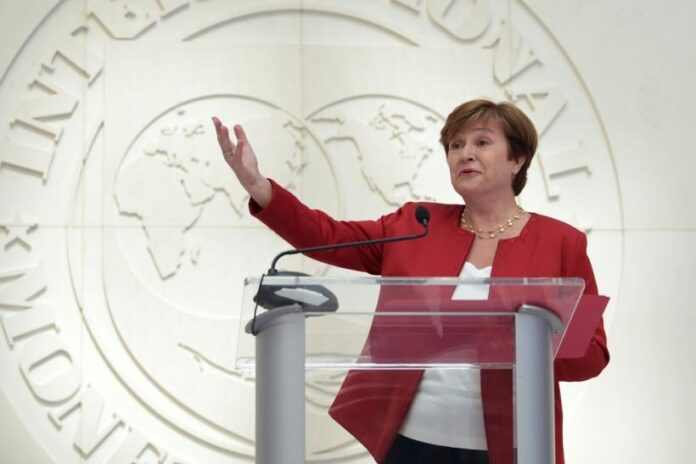The International Monetary Fund (IMF) will remain firmly focused on preventing balance of payments crises while incorporating concerns raised by the Trump administration, according to Managing Director Kristalina Georgieva.
Speaking during the IMF and World Bank spring meetings, Georgieva acknowledged directives from U.S. Treasury Secretary Scott Bessent and confirmed these would be discussed with representatives from the IMF’s 190 member countries. She also welcomed Bessent’s statement of U.S. support for the IMF.
Bessent, in remarks a day earlier, urged both the IMF and World Bank to return to their core mandates of macroeconomic stability and development, arguing they had drifted toward broader social agendas including climate change, gender, and inclusion, thereby weakening their effectiveness. His recommendations reflect the Trump administration’s broader efforts to reverse climate and gender-focused policies implemented under President Biden.
Bessent also called for expanded World Bank energy lending to include fossil fuels and nuclear power, emphasizing that IMF and World Bank leaders must earn the Trump administration’s trust through a “back-to-basics” approach.
Georgieva maintained that climate change remains relevant to macroeconomic policy in certain cases, pointing to vulnerable countries like Dominica, where natural disasters can devastate national GDP. She clarified that the IMF does not employ climate experts but must consider economic resilience.
Regarding the Resilience and Sustainability Trust launched in 2022, she noted it represents a small fraction of IMF financing and stressed that IMF policies are ultimately determined by member nations.
Georgieva agreed with Bessent’s emphasis on cost-efficiency, noting that the IMF’s inflation-adjusted budget has remained unchanged over the past two decades. She underscored the importance of fiscal discipline, stating, “I really like to run a tight ship.”
The IMF chief identified high U.S. tariffs, the most significant in more than a century, as the institution’s primary macroeconomic concern. These tariffs have contributed to a downgraded 2025 global growth outlook. She warned that the global economy is undergoing a major test with limited policy buffers due to recent shocks.
Despite rising speculation of a U.S. recession among private-sector economists, Georgieva upheld the IMF’s projection of a 37% probability, citing resilient labor market and economic activity indicators.
Georgieva urged countries to respond to global trade challenges through economic reforms aimed at boosting growth, including regulatory streamlining and innovation. She called for major trading economies to reduce tariff tensions to alleviate investment and consumer uncertainty.
In her remarks, she also urged China to shift toward consumption-driven growth, the U.S. to address its fiscal deficits, and the European Union to complete reforms for a unified banking and capital market.




